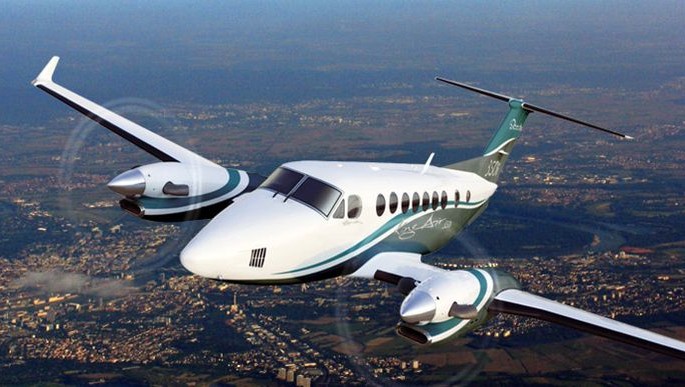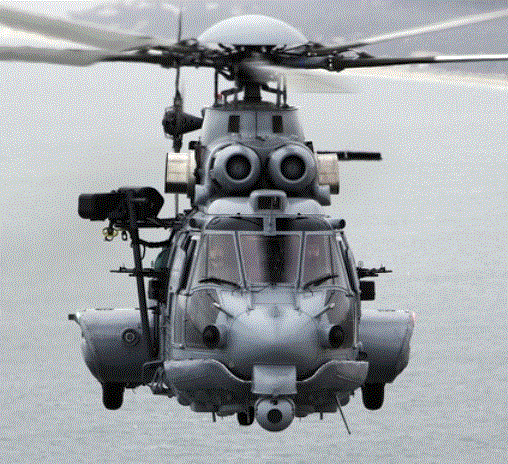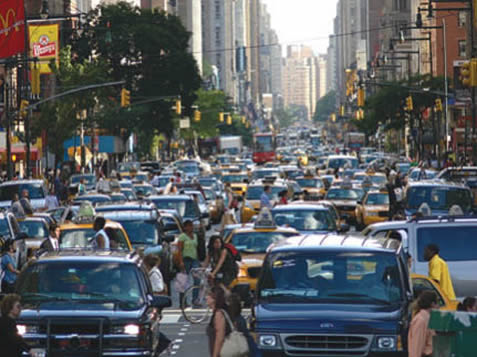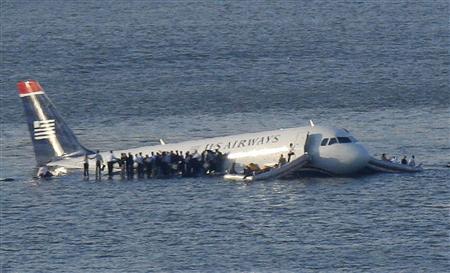It’s possible to fly blind and survive. It’s possible to fly a twin-engine Beechcraft through a wicked storm without instruments; without communication; find the airfield, locate an empty runway, and land safely.
It’s possible to feel the air disappear beneath your wings and freefall — even tumble — thousands of feet, time after time, dozens of times, recover the aircraft, and keep on flying.
It’s possible for clouds to be impenetrable, lightning to be relentless and unceasing, rain to be thick as waterfalls — with a vomiting passenger in the seat next to you — and keep your wits, keep your senses, keep your fear in check, keep your focus, and keep flying.
Anything is possible during a storm when all is lost except training and skills and the belief that you really are the best pilot in the Navy — when you know deep in your gut that this storm, which forecasters managed to miss, is not how it’s going to end for you or the high-ranking government official sitting in the seat next who hates to fly; who hitched a ride, who chose you, because he trusted you to get him to his meeting with the president, or whoever it was, in one piece.
It’s not possible to stay dry however. During this flight my dad, the pilot, sweat through his clothes. When I met him after his ten minute drive home from the airfield, I asked him, how did you get so wet? His hair and face looked like he just stepped out of the shower. His flight-suit was dark with sweat; water dripped from his cuffs; even his shoes squeaked from pooling sweat around his feet.
I had a rough flight, he said. The worst flight of my life. I got overheated. Never sweat like this, ever. I’m ok. We made it. No problems.
Dad left it at that. But a week later, his passenger came to our house for dinner. He told the whole story. He said Dad saved his life during that flight. No one in the Navy was a better pilot, he insisted, and I believed him.
It was 1964; I was a high school sophomore living at home in Arlington, Virginia near the nation’s capitol. It was the year when Barry Goldwater, the darling of the lunatic fringe of the Republican Party, ran for president. He lost everywhere except Alabama, Georgia, Louisiana, Mississippi, South Carolina and Arizona — his home state. (Today — a lifetime later — lunatics are mainstream; go figure.)
In 1964, the American Nazi Party — led by retired Navy Commander Lincoln Rockwell — owned a field next to our neighborhood where it maintained a barracks and its national headquarters.
Rockwell’s few dozen men were heavily armed; we heard they used German Shepherds to keep gawkers away, but we never saw any when me and my friends snuck onto the property to fire bottle rockets at the barracks. One time a trooper in black boots and tee-shirt walked up on us and clicked the bolt on his rifle. We ran like hell to get away. He didn’t squeeze the trigger. We didn’t trespass again, either.
One time, we visited the Nazi offices and barracks on a dare. A guard let us into the headquarters. I was amazed at how much red color there was. The carpeting on the floors, the walls — even the carpeting on the ceilings — all was red.
It was quiet inside, like a church; even tranquil. One of the men invited us to take some pamphlets from a table in the foyer. We took some, but I don’t remember reading anything but a few of the headings. The content — what little I scanned — seemed ignorant. The Nazis despised Jews and Negroes. What else was new?
A few years later someone on a roof at a strip mall near our house fired a shot at Rockwell. He was leaving the laundromat where he washed his clothes, of all things.
I always bought pop-sickles and candy a few doors down at the Seven-Eleven. It didn’t seem particularly remarkable to learn in 1967 as I started my sophomore year at college that someone assassinated the Nazi commander a mere half-mile from my house.
But to get back to my essay…
Dad crashed a couple of planes during his time in the Navy; it seemed like every pilot screwed up sometime in those early days during World War II and a little after.
During one accident Dad and another pilot collided over a town in Florida. Dad had to bail; he was flying low; his parachute opened immediately; he swung three times as he hung suspended beneath; he hit the ground hard. Except for bruises, he was fine. The other pilot tumbled into the ground and was killed.
The Navy court-martialed my dad, which came as a shock; an official inquiry followed; it lasted a few months, and, in the end, Dad had to take the stand and testify; he was terrified the whole time, my grandfather told me.
Dad confirmed it; he was never more scared before or after, he confessed many years later. The Navy cleared Dad of wrong-doing; he lived to fly another day — with a clean record — which is all he wanted to do anyway since as a boy he first saw an airplane fly over his farm.
Flying was freedom. It was so clear. He hated working in the mud and manure of a farm; if he could fly, he could escape — like the pilots who flew over his farm, he would be free. He would find a way.
It took planning and luck, but he made it. He took a train from Detroit to Chicago; he managed to sign up for the Navy flight program five minutes before the deadline. The rest is history.
Dad rose rapidly in the ranks of both Naval Aviation and Navy intelligence; more specifically the National Security Agency (NSA), which in those days tracked ships, mostly. Early on, the Navy taught him to speak Russian; much later, they taught him French, but it was too late. He never became fluent.
People who know how I write, must by now realize that this essay is going somewhere amazing; somewhere they don’t expect. Have patience. Keep reading.
Dad was a leader with strong views about what made for good leadership. He believed in taking care of his men; he believed in meting out justice to misbehaving officers and enlisted men in the same way — no favoritism to officers.
Military justice doesn’t work the same way as civilian justice. People who have served in the Navy know that commanders can throw their people in the “brig” for any reason — or no reason.
Commanders have absolute power, which they must have if they are to lead an effective fighting force that obeys orders under combat duress and the threat of death. Dad punished officers in the same way he disciplined the men.
(Editor’s note: women didn’t serve in fighting units until the 1990s.)
But Dad had another belief about power that people who have never wielded it don’t understand. To lead disparate and rebellious people — which large groups of humans tend to be — it is essential to keep them guessing; to keep them off guard; to keep them off-balance; and most important, to keep them uninformed. Never tell subordinates anything they don’t have an absolute need to know. Make everyone unsure of what they think they know and what they think they don’t know.
How does this work in practice? Why is it effective?
My uncle Dean told me a story about a time when Dad took him to visit the anti-submarine, jet-helicopter squadron he commanded in Key West, Florida. It was dark — about nine o’clock at night (2100 hours they say in the Navy).
Dad parked his car outside the guard shack; he and Dean got out and walked past the guard. The guard motioned them through with a salute and a smile.
According to my uncle, Dad whirled around and stormed the guard. He stood toe to toe, in his face, and dressed him down. You will demand identification from anyone who passes this point, sailor! He pointed at my uncle. This man, here, he might be a spy. You put the security of the most important squadron of fighters on this island at risk. Report to my office tomorrow morning — 1000 hours.
Yes sir! the guard said.
Dad took Uncle Dean into the hangar and showed him anti-submarine jet-helicopters. He took him aboard his favorite and showed him the complicated arrays of instruments and armaments then available to the armed forces.
Gages and dials, buttons and levers, advanced screens and switches covered the cockpit ceiling, its floor and doors and front panels. Belts and canisters and other incomprehensible items filled every available nook and cranny. There was no empty space, anywhere.
Dean got quite a show, I can tell you, because Dad took me on the same tour. My thought after seeing how the Navy fights was, how does anyone learn all this complicated stuff, let alone fly these monstrous beasts, which slay the Russian sub-dragons?
Anyway, the tour ended after ten or fifteen minutes, and the two men left the hangar to return to the car and begin the drive home. We lived on the base less than two miles from the squadron. Dad and Dean walked along laughing about something, when the guard stopped them. May I see your identification, gentlemen? he said calmly.
Once again, Dad spun on his heels. What? Are you blind? Am I not the commander of this squadron? Do you not see me every day? You checked Dean, here, ten minutes ago. He is a guest. Leave us alone and show respect. Return to post.
Sir… yes sir! the guard shouted.
Later, Dean asked dad. You ordered this sailor to always ask for ID. Later, when he did exactly as you asked, you humiliated him. Why?
When you’re in charge, Dad said, the men have to know. You keep them guessing. You keep them off-balance. You force them to determine in their own minds what they believe you expect from them. Everything works better that way.
Yeah, it’s weird. But I think he might have understood something important. I’ve known other powerful men who operate the same way. I’ve worked for some.
Our newly elected president seems to share this view of power. Disinformation seems to be his modus operandi.
Another sacrosanct principle of leadership is not sharing information with “the help.” No one will ever see the tax returns, balance sheets, income statements, or health records of the newly elected president.
It’s called flying blind. Everyone flies blind except the pilot. He’s trained. He knows what to do. The world might seem to be falling apart all around. But with any luck at all, the pilot will land the plane — safely.
There is one thing that my dad once did that has been erased from history by disinformation. In the must-read book by Oliver Stone, The Untold History of the United States, Mr. Stone tells a story about an incident during the Cuban missile crisis that almost led to nuclear war. Here is an excerpt:
On October 27 [1962] an incident occurred that Schlesinger accurately described as ”not only the most dangerous moment of the Cold War. It was the most dangerous moment in human history.” A navy group led by the carrier USS Randolph began dropping depth charges near a Soviet B-59 submarine sent to protect the other Soviet ships approaching Cuba. Those inside the U.S. destroyers were unaware that the Soviet sub was carrying nuclear weapons. Soviet signals officer Vadim Orlov described the scene: ”The depth charges [sic] exploded right next to the hull.”
Get the book to read a harrowing account of the hours of hell Russian men inside the sub endured. Some officers passed out. The bottom line is this: the submarine’s commanding officer gave an order to launch a nuclear missile, but the communist political officer on board, Vasili Arkhipov, overruled him. According to Oliver Stone, Arkhipov refused to launch, single handedly preventing nuclear war.
I can tell readers that the only weapons of war we had in Key West capable of chasing nuclear subs and dropping depth charges with the accuracy described in the book was Sikorsky anti-submarine jet-helicopters, which were under the command of my dad. They used new communication technologies called spread spectrum communications. The Russians were unable to jam USA crosstalk or track the trajectories of our most lethal weapons.
The Russians were flying blind, and it hurt them, big-time. These secret technologies have since become the foundation of modern communications used by satellites, cell phones, and GPS.
One pilot in the Navy had both the nerve and skill to deploy depth charges onto a nuclear submarine without risk of a direct hit, which would have released poisons. Only one had access to intelligence about Russian subs in the area — intelligence no one but a few senior officers shared.
He was the one pilot in theater who was not flying blind. He happened to be an NSA officer, yes. He knew the rules of engagement on both sides. He spoke Russian. He trusted his training and skills. He could chase a Russian nuclear sub out of Cuban waters and turn the confrontation in our favor.
It’s what he did.
Enough said.
Researchers told Oliver Stone that we were flying blind; it was only luck and a Russian political operative who prevented a nuclear war during the Cuban missile crisis of 1962. So, he wrote it down.
What else could he do? He wasn’t there. I was. I lived with one of the key players. We ate breakfast and dinner together almost every single day.
Maybe most on the aircraft carrier USS Randolph and its escort ships were sailing blind, like Stone suggested; maybe most of the pilots were flying blind; but not everyone. Maybe, sometimes, people get lucky.
That’s what Dad believed. He always said, people make their own luck.
Practice, preparation, persistence, plus perception based on the best intelligence; the best equipment; the best technology — there is nothing lucky or blind about any of it.
Add a little patriotism.
It’s why we win.
Billy Lee



















